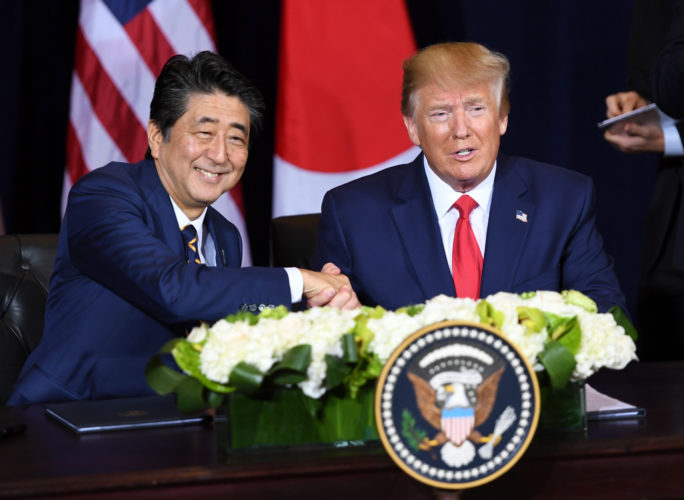
An international business expert has said that the trade deal Donald Trump struck with Japan that has been welcomed by the U.S. rural sector key to his re-election chances, is not enough to make up for the downturn farmers have endured under the president’s trade wars.
It will cut tariffs on some U.S. farm goods like beef and pork and Japanese machine tools, as well as guaranteeing tariff-free digital commerce between the countries. However in what is seen as a compromise, Trump did not come through on his threat to level tariffs on imported Japanese cars.
Beef and pork farmers have been hurt after Trump withdrew the U.S. from the Trans-Pacific Partnership (TPP).
After the Japanese deal, American Farm Bureau Federation president Zippy Duvall said his organization was “thankful the administration has reached this deal and we urge trade negotiators to achieve many more like it.
“The time for trade wars has come and gone,” he added in a statement.
Farmers for Free Trade said in a statement: “We hope this new agreement leads to more wins, as well as progress in achieving a better trade relationship with China.”
But Bill Reinsch, who was under secretary of commerce for export administration in President Bill Clinton’s administration and is an international business expert at the Washington D.C.-based Center for Strategic and International Studies, said the Japan deal is dwarfed by the impact of Trump’s aggressive trade war with China.
“This is a good thing but it does not make up for what he has cost farmers on China,” he told Newsweek.
“We are not getting everything that we would have got in TPP, but neither are they [Japan].
“I think business would have preferred a larger agreement, so I think that is the bottom line. The other discussion is whether this is phase one of a comprehensive deal and if there will be a follow-on discussion.”
Trump had used his tough talk on Beijing to appeal to his electoral base, who backed his narrative that the U.S. has been on the losing end of its trading relationship with China.
However, many farmers have since said they are losing money as a result of the president’s trade spat with Beijing.
Reinsch told Newsweek: “Maybe deep down all Trump wants from China is a giant access package in which they agree to buy a lot more stuff so he can say he got them to reduce the bilateral deficit.
“China tried that and it didn’t get very far with it because the president really believes structural change has to be part of the agreement,” he added.
